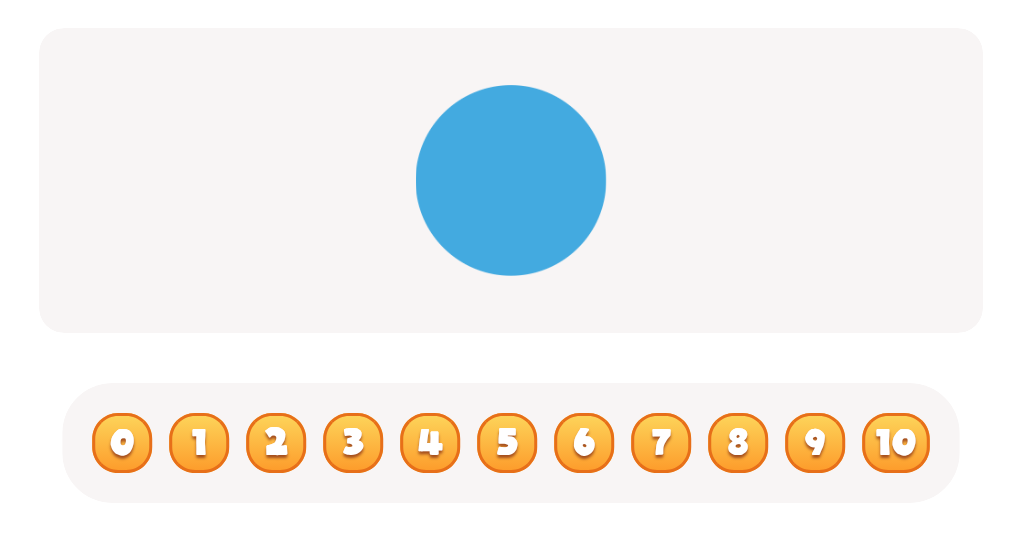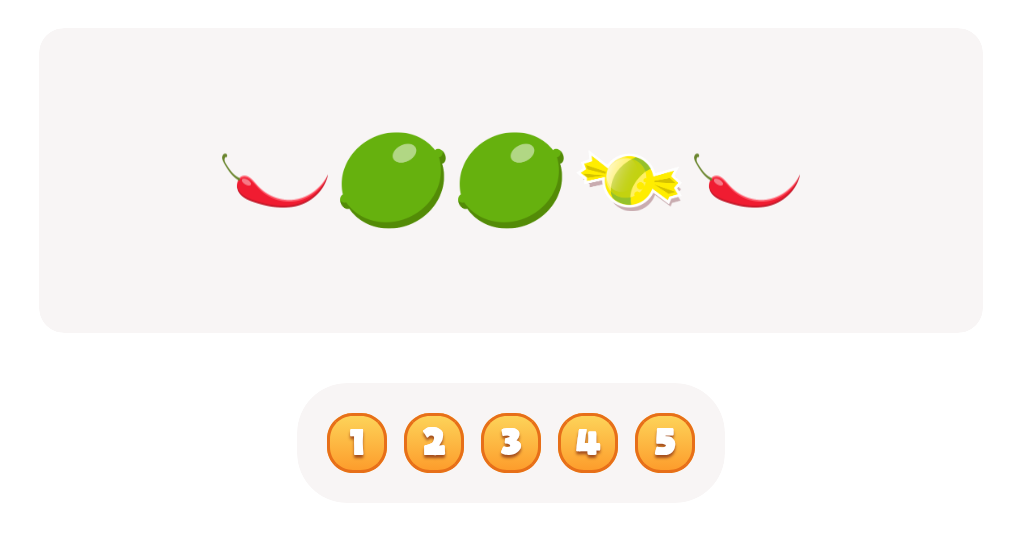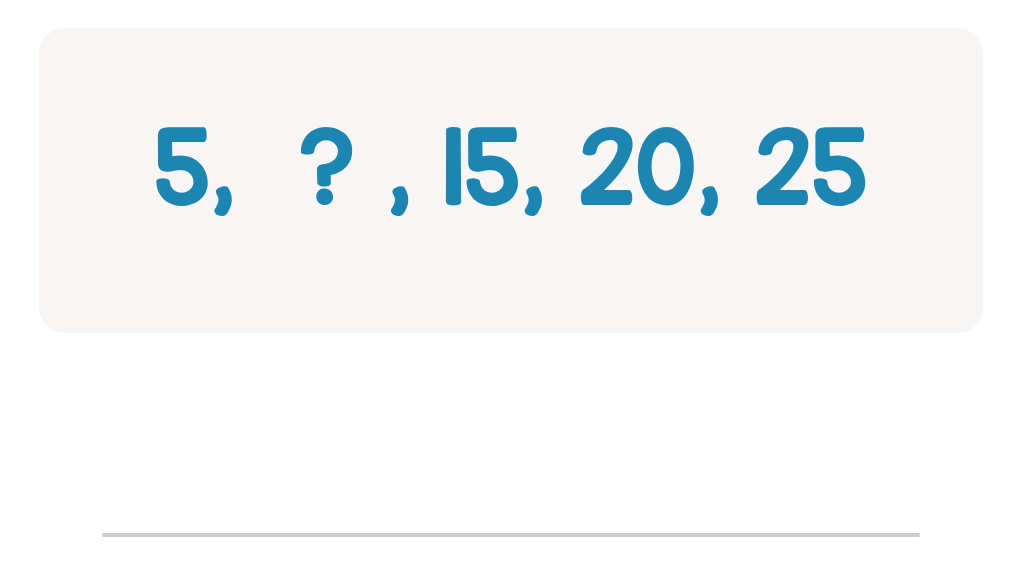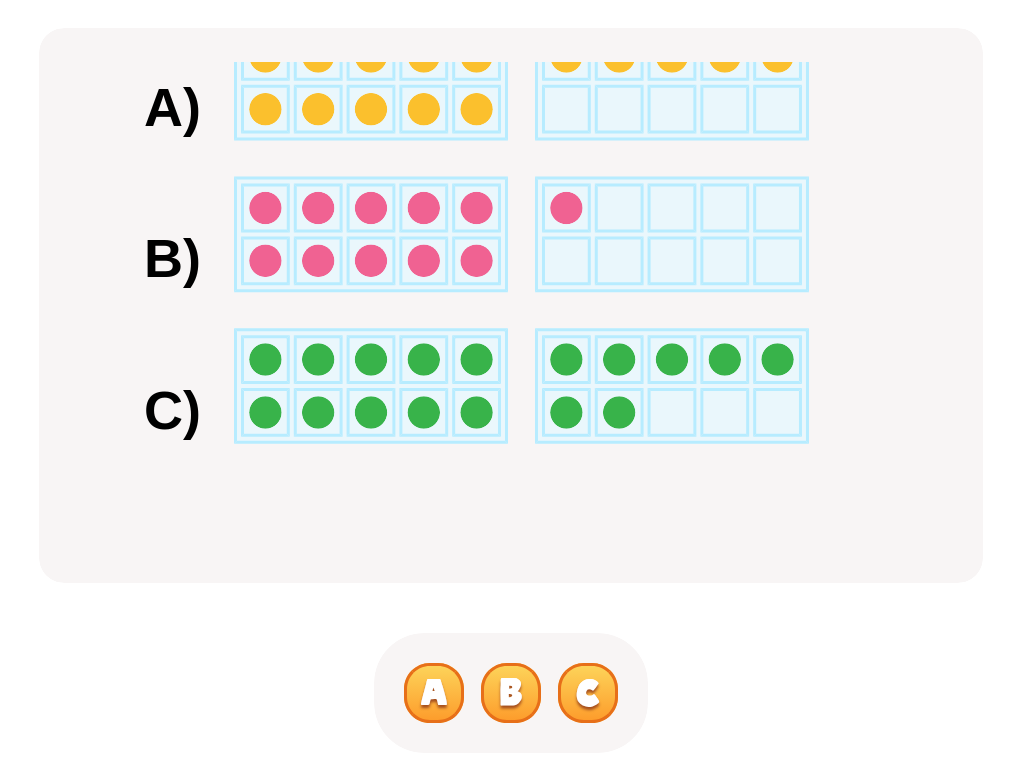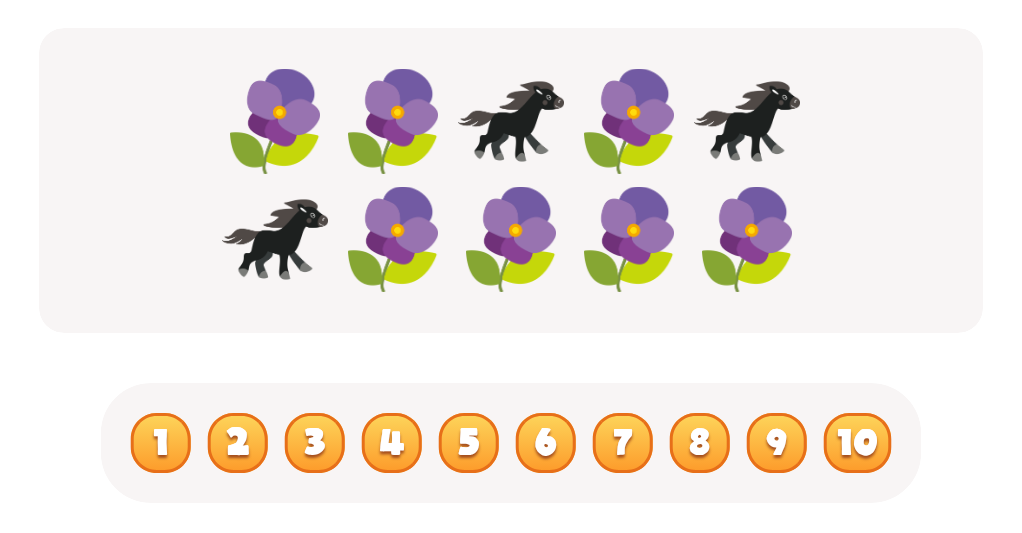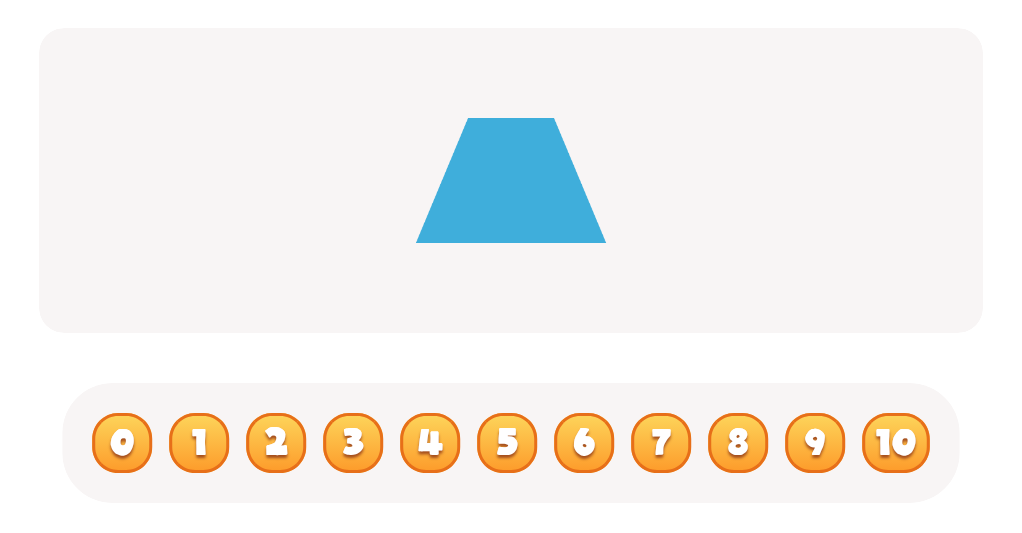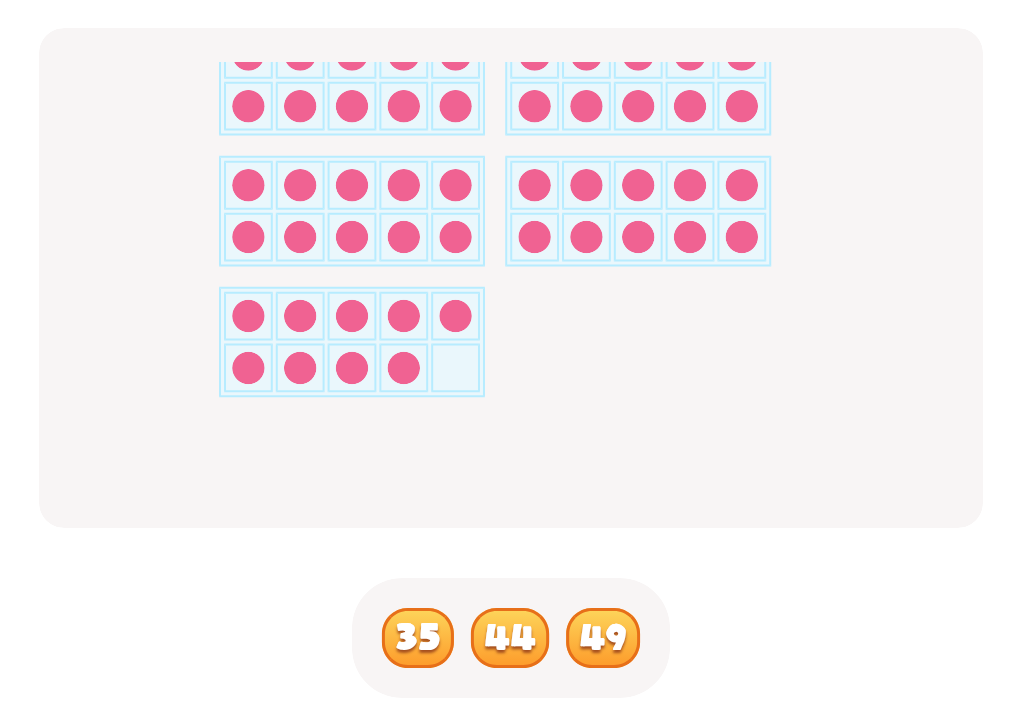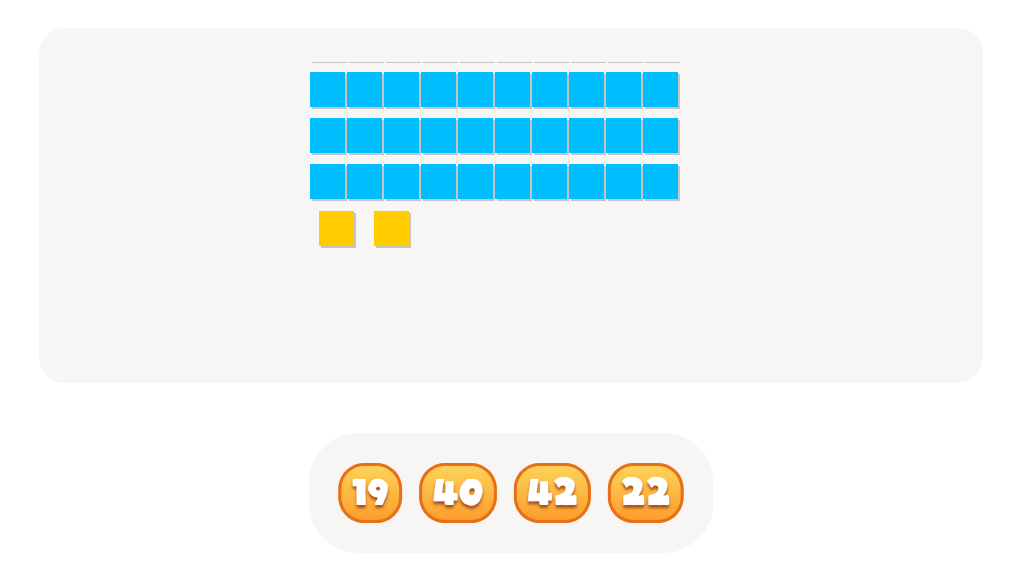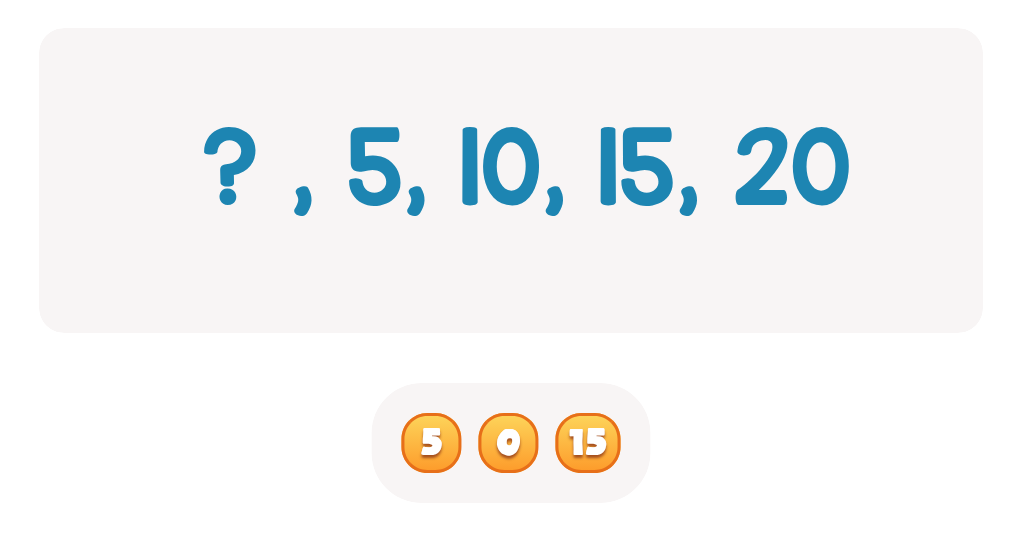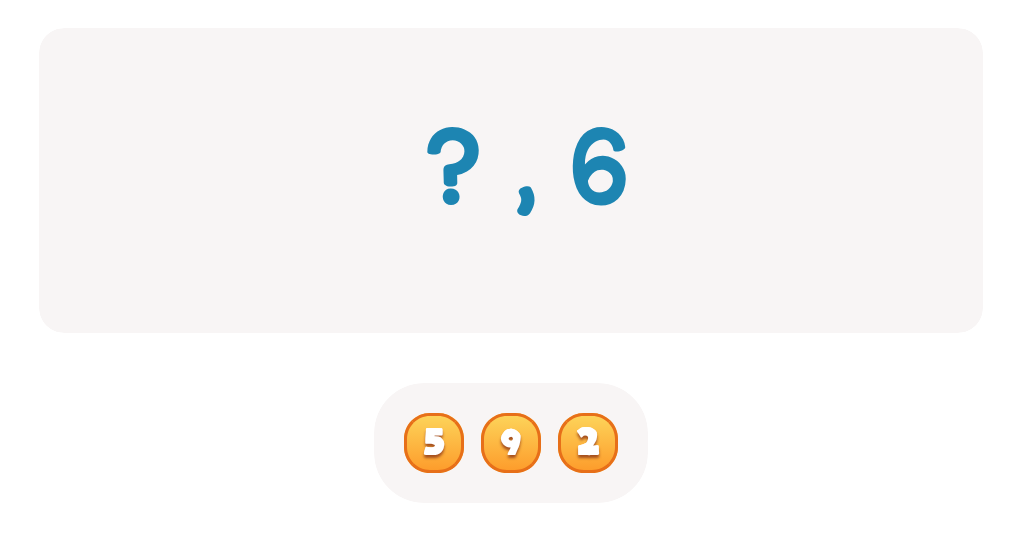Number Sequencing Counting Worksheets for Ages 3-9
5 filtered results
-
From - To
Unlock your child’s math potential with our Number Sequencing Counting Worksheets designed for ages 3-9! These engaging worksheets foster essential counting skills and enhance number recognition through fun activities. From preschoolers learning to count in order to early learners mastering more complex sequences, our resources cater to various developmental stages. Our carefully crafted exercises aim to make learning enjoyable, encouraging kids to explore numbers while boosting their confidence in math. Ideal for both classroom and home use, these worksheets provide a solid foundation in numeracy that sets your child up for future academic success. Download now and watch them thrive!
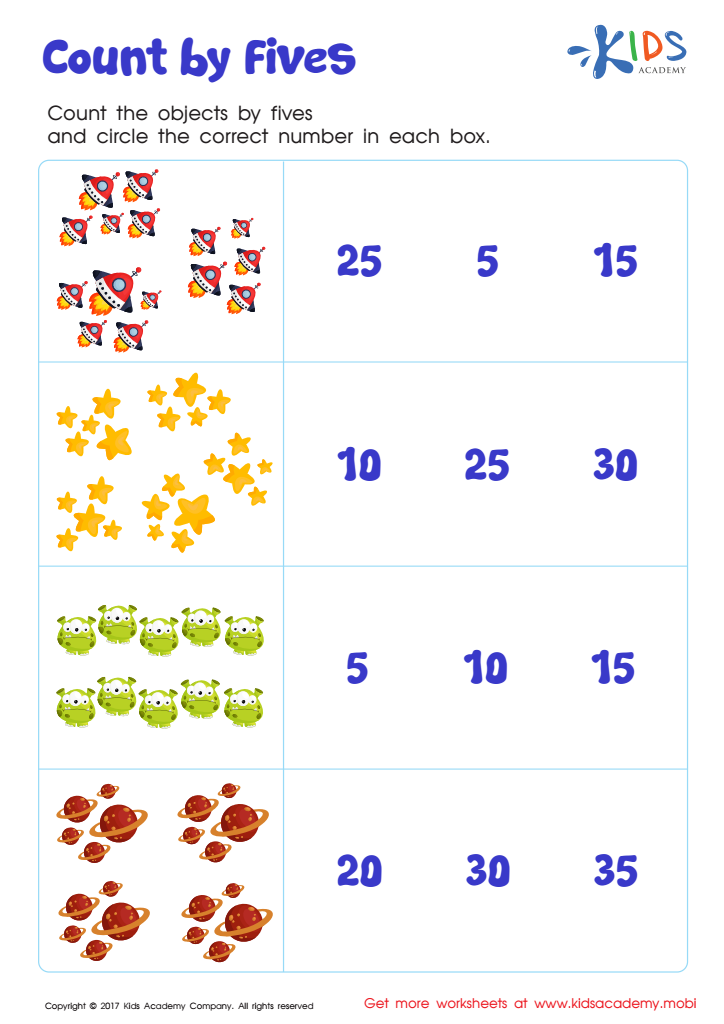

Skip Counting by 5s: Space Math Printable
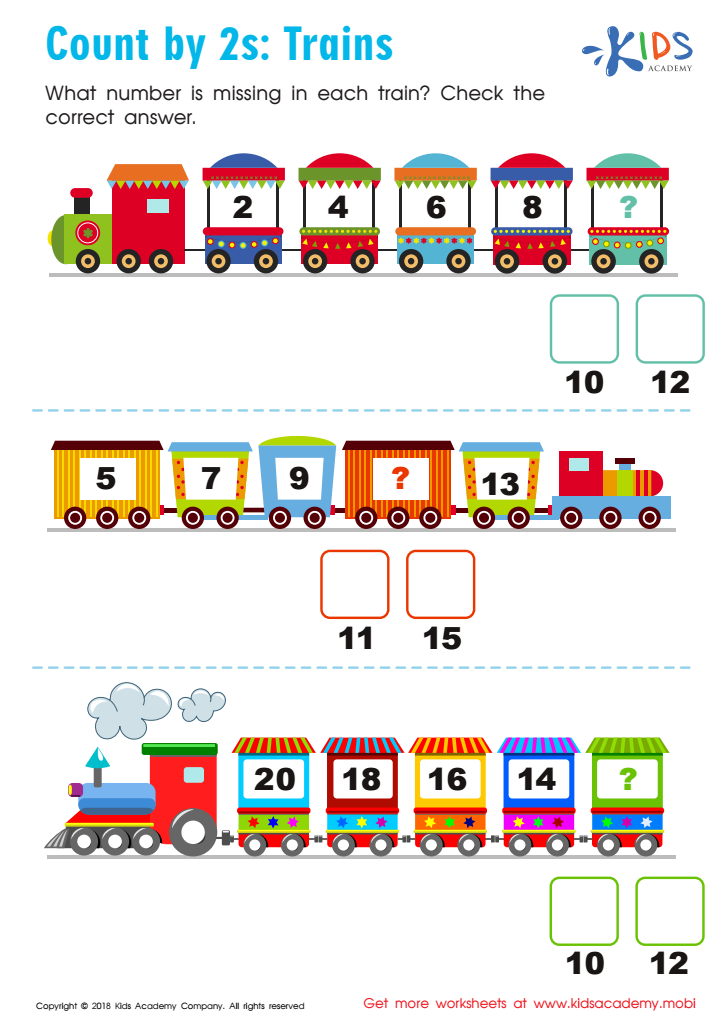

Count by 2's: Trains Worksheet
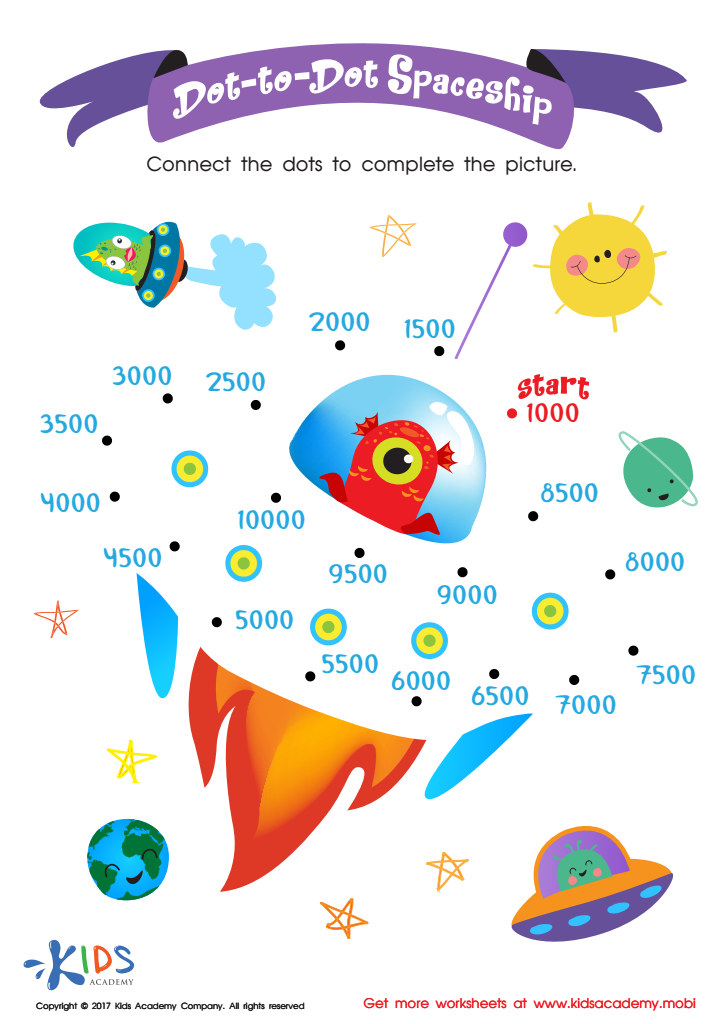

Dot to Dot Worksheet for 3rd Grade


Frog Countdown Worksheet
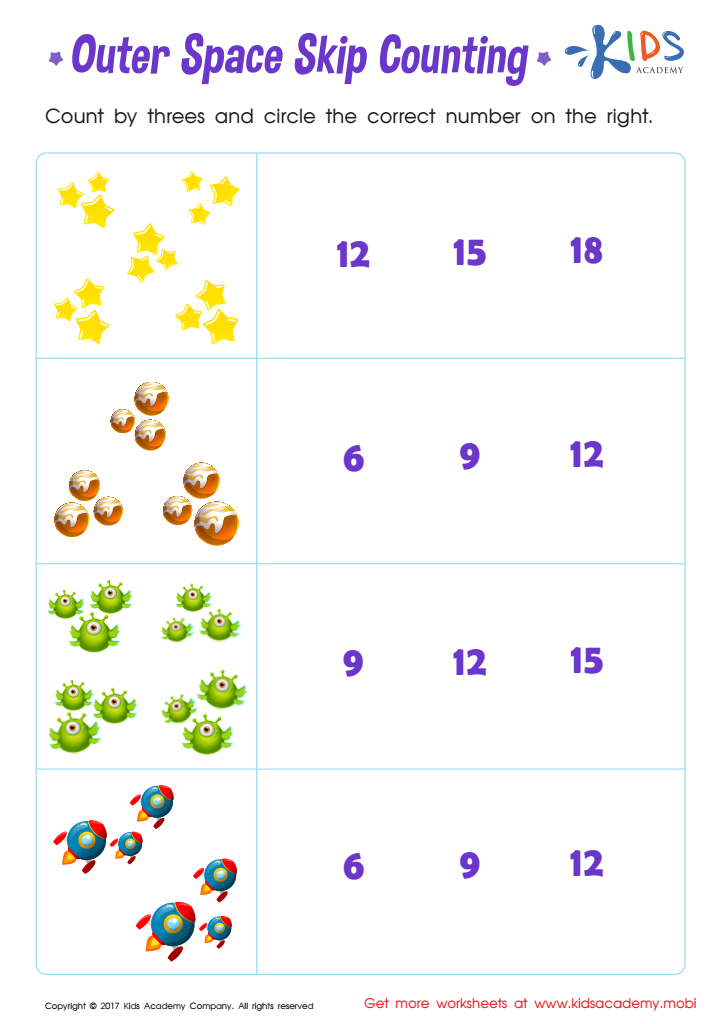

Skip Counting by 3s: Outer Space Skip Counting Printable
Number sequencing and counting are foundational skills that significantly influence a child's future mathematical understanding and overall cognitive development. From ages 3 to 9, children's brains are exceptionally receptive to acquiring new concepts. Mastering these basic skills not only lays the groundwork for more advanced mathematics but also enhances critical thinking and problem-solving abilities.
Counting helps children develop one-to-one correspondence and an understanding of quantity, enabling them to recognize and use numbers meaningfully. Furthermore, number sequencing introduces them to concepts such as order, patterns, and the relationship between numbers, which are essential for advanced mathematical operations later on.
Parents and teachers play a vital role in cultivating these skills through playful activities and engaging methods. Early exposure to counting and sequencing fosters a positive attitude towards math, often easing future learning obstacles. It also encourages curiosity and exploration, laying the foundation for lifelong learning.
By prioritizing number sequencing and counting, caregivers help children build confidence in their math abilities, ensuring they are well-prepared for academic success and equipped with essential skills for everyday life. Investing time in these formative years can have a lasting impact on a child's educational journey.
 Assign to My Students
Assign to My Students
